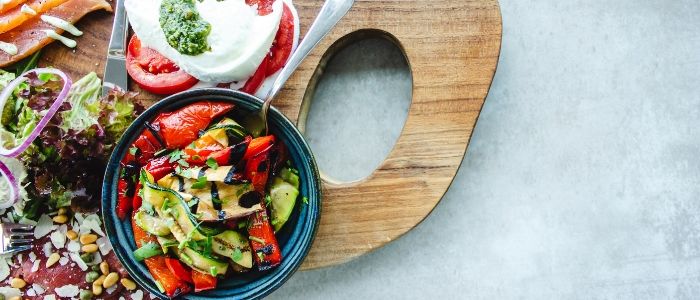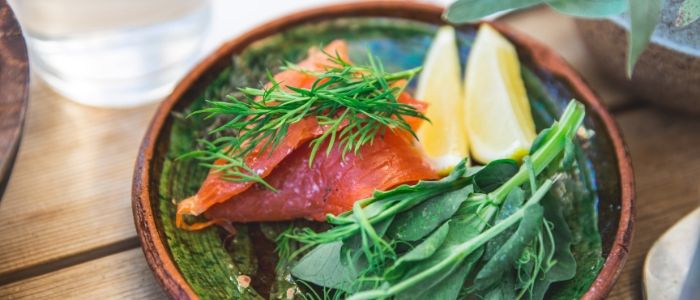Can food help boost my fertility?
It may come as no big surprise, but what we eat can have a huge impact on our overall sense of health and well-being. From helping fuel us to get through the day to spicing up our sex lives and shaping our mood, nutrition has a big part to play.

If you are planning on expanding your family, taking a closer look at your health, well-being, and diet is an important step. Ensuring your body is getting the right levels of vitamins, minerals, and nutrients it needs to help you conceive and have a smooth, successful pregnancy is key. Knowing what you should be eating – and what foods you should avoid – can be a great first step towards helping increase fertility in women (and men).
Getting started
No matter what stage of life you are in, eating a balanced diet filled with fruits and vegetables is important. Ensuring you are getting at least five portions each day, as well as eating starchy food, and moderate amounts of meat, dairy and fish are all recommended. Unsurprisingly, it is advised to avoid foods high in saturated fats and sugar.
But how should you specifically tailor your diet to best increase your chances of falling pregnant?
As one nutritionist explains, “In order to increase your chances of conceiving naturally, more quickly and to prepare your body for a healthy pregnancy, you should begin a preconception or fertility programme at least three months before you start trying for a baby. This rids your body of any unwanted toxins that could affect egg health and also corrects any hormonal imbalances that could prevent you from conceiving.
“The health of the sperm is of equal importance. Some of the biggest causes of low sperm count include alcohol and cigarettes.”

Avoid caffeine – Drinking coffee, caffeinated tea, fizzy drinks, and eating chocolate can all reduce your chances of conceiving. Try and make the switch to herbal and caffeine-free teas.
Take folic acid – Taking folic acid supplements or increasing the amount of leafy greens (spinach, kale), fortified cereals and grains you eat is advised while you are trying for a baby, as well as up to the 12th week of your pregnancy. This increase in folic acid can help reduce the risk of neural tube defects. Research has shown that women who take folic acid each day prior to conception and throughout early pregnancy reduce the risk of their baby being born with a neural tube defect by up to 70%.
Eat oily fish – Nutritionist Alisa advises eating plenty of oily fish, including salmon, trout, herring, mackerel, sardines, and fresh tuna when you are trying to boost your fertility. She explains “oily fish contain omega 3 fats, which the body needs but can’t make itself. These fats are the building blocks of all hormones and, if your body doesn’t have enough of them, your fertility could be compromised.
“What’s more, these fats are anti-inflammatory (inflammation can over-stimulate the immune response) and can reduce blood clotting, both of which can help prevent miscarriage. Aim for three servings a week.”
Increase your Vitamin D – Vitamin D can help ensure your baby will develop strong, healthy bones. While we obtain a small amount from natural sources, such as sun exposure and food, it can be difficult to gain the full recommended daily allowance this way. Taking supplements can help.
Up your fibre – Once you fall pregnant, you will begin producing more female hormones to help your pregnancy run smoothly. This can lead to constipation; to help overcome this and continue with your regular habits, increase your fibre intake through fruit, vegetables, wholemeal bread and cereals.
Increase your calcium intake – Eating foods rich in calcium (green vegetables, pasteurized milk, yoghurt, or dairy products) before and during the final 10 weeks of your pregnancy can help ensure your baby develops strong, healthy bones and teeth.
Improve your iron levels – An essential part of the production of protein found in our red blood cells, once pregnant, the amount of blood you have in your body increases by around 50% to help accommodate for your baby – meaning producing enough haemoglobin is important. Topping up your iron levels by eating lean meat, leafy green vegetables and nuts can all help you to avoid anaemia, a common issue during pregnancy.

Swap white carbs for complex carbs – As one nutritionist explains, having whole grain bread, pasta, rice, and switching to sweet potatoes can have a positive impact. “Don’t always have wheat-based carbs, try non-gluten grains such as quinoa and buckwheat. The reason is two-fold, white (refined) carbs have a high Glycaemic Index (GI) and load (GL) and disrupt blood sugar balance, which in turn disrupts your reproductive hormone balance.
“The complex carbs don’t have the same disrupting effect on blood sugar and hormones. Secondly, by removing the husk (white/refined products) the essential nutrients such as B6 are also removed. The complex carbs still have their husks intact and so do their nutrient content. Good sources of B6 include whole grains, avocado, spinach, bananas, wild-caught fish, grass-fed meats, eggs, legumes.”
What should I stop doing while trying to fall pregnant?
Along with plenty of things you should be doing, there are a number of lifestyle changes to consider to best increase your health, well-being, and chances of becoming pregnant. Stopping drinking and smoking can help improve your overall well-being whilst decreasing the chances of causing harm during pregnancy.
Decreasing your overall stress levels can also have a surprising impact. As one nutritionist explains, “Stress is bad news for fertility. When women are under stress, the hormones produced are no different from those our prehistoric ancestors produced when running away from predators. Blood flow is restricted from the reproductive system as it is rushed into the muscles. Fertility hormone production is hindered.
“Nutritionally, there is also a lot that can be done to negate the effects of stress, especially B vitamins and zinc. A diet rich in plants, whole grains, good quality proteins and fats is essential to keep your hormones in check to give you the best chance at coping with stress and conceiving a happy and healthy baby.
“In addition to the usual suspects, a diet low in sugar is important too. Just as adrenalin upsets reproductive hormones function, so does insulin – the hormone released into our bloodstream in response to food high in sugar content.”
How can working with a nutritionist help?
By working together with a nutritionist or dietitian, you can help ensure that you are consuming the right balance of nutrients to increase your chance of healthy birth weight and decreasing the chances of some birth defects. Improving your diet may also be linked to reducing symptoms of morning sickness, mood swings, feelings of fatigue, as well as reducing constipation whilst speeding up postnatal recovery.

Find a nutritionist dealing with Pregnancy and preconception
All nutrition professionals are verified


